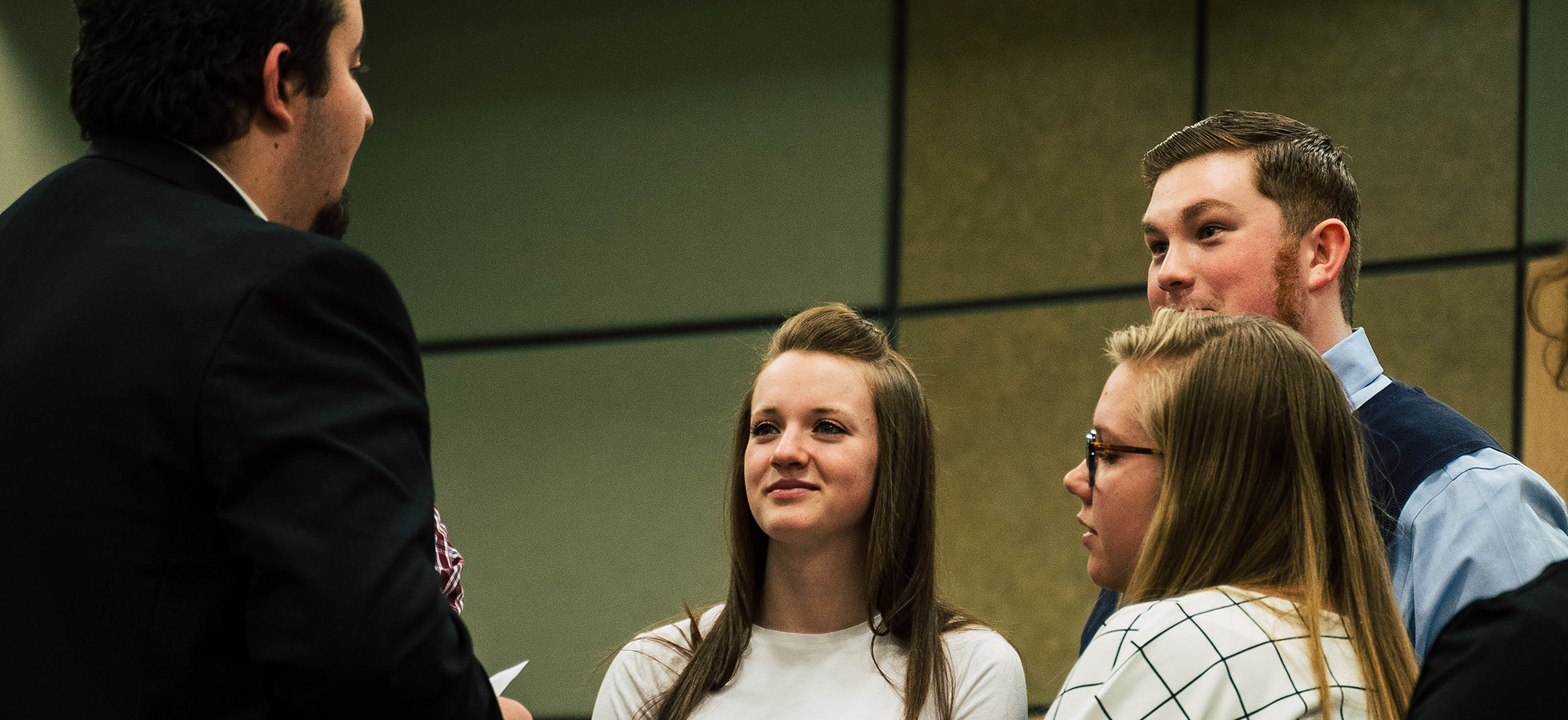Assumption’s Moynihan Institute Launches Model Senate Project

Furthering its mission of encouraging the convergence of scholarship and statesmanship, the Daniel Patrick Moynihan Center at Assumption University recently launched the Moynihan Model Senate Project. This program provides Assumption students the opportunity to simulate historical and contemporary Senate debates, with the goal of teaching them about the nature of statesmanship and the distinct function of the United States Senate in our constitutional republic.
“Our main goal is to teach the students about the relationship between ideas and action in political life,” said Associate Director of the Moynihan Center Deborah O’Malley, Ph.D. “People often assume that politics is solely about power, but delving into these historical debates demonstrates the importance of the perennial questions of politics.”
The first debate, which took place on February 17, was a recreation of the U.S. Senate’s debate on whether or not the United States should ratify the Treaty of Versailles. Each student was assigned the role of a historical senator and was tasked with researching his or her character and positions.
To assist in the preparation, James Wallner, Ph.D., a Senate scholar, political commentator, author, and senior fellow at the R Street Institute, traveled to campus from Washington, DC, to lead students in a discussion of the Federalist Papers. Thomas Goodman, an adjunct professor of political science, who also served as Vice President Thomas Marshall in the debate, compiled all of the preparation materials and worked with the students for several weeks beforehand, analyzing the Treaty of Versailles, its most contentious articles, and the factional divide that emerged in the Senate.
According to Prof. Goodman, the Senate Project, which encompasses a group of 30 students, will enhance their educational experience at Assumption and humanize history for them. “They will gain a deeper, more well-rounded appreciation of American history through the lens of the Senate,” he said. “For students in unfamiliar terrain, many critical historical figures and events can be indistinguishable and difficult to fully grasp.” He added that through this project, “we hope to inculcate students with a renewed interest in Congress and a recognition of its constructive role as a relevant government body, perhaps even spurring a much-needed long-overdue reappraisal of the institution.”
For Parker Sears ’20, a history and political science major from Boxford who played President Woodrow Wilson in the debate, this experience differentiates him from his peers and complements his Assumption education by giving him the opportunity to further debate and discuss political theories. “What separates a naïve idealist from an intellectual statesman is precisely learned through experience in the practical implementation of ideas,” he said. “This is the kind of experience that the Daniel Patrick Moynihan project was able to give me.”
Tess Haller ’20, a political science major from Cape Elizabeth, ME, participated in the project to better understand the legislative process. “I interned in the (U.S.) Senate in Washington, DC, over the summer, so it is a unique opportunity to be able to see it from the other side and understand what senators themselves must do in order to get things done,” she explained, adding that the project allows her to exercise the critical thinking and problem-solving skills that she’s learned in the classroom, as well as the need to work with others to achieve results.
“Seeing the principles that they’ve studied in class emerge throughout a legislative debate shows them how much ideas really do matter,” said O’Malley, who has been impressed by the amount of work and critical thought that the students put into the event. “[These students] understand how important ideas are to politics, and that’s exactly what we hoped to demonstrate with this project.”
Prof. O’Malley shared that each semester, the goal is to recreate between four and five Senate debates, which will include a judicial confirmation hearing, a presidential impeachment trial, and various pieces of historical legislation. At the end of the semester, the group will travel to the Edward M. Kennedy Institute for the U.S. Senate in Boston, which contains a replica of the U.S. Senate chamber and a number of interactive exhibits on the history of the Senate.
The Moynihan Model Senate project is made possible by a generous grant from the Jack Miller Center, a non-profit organization that promotes the study of American constitutionalism.
